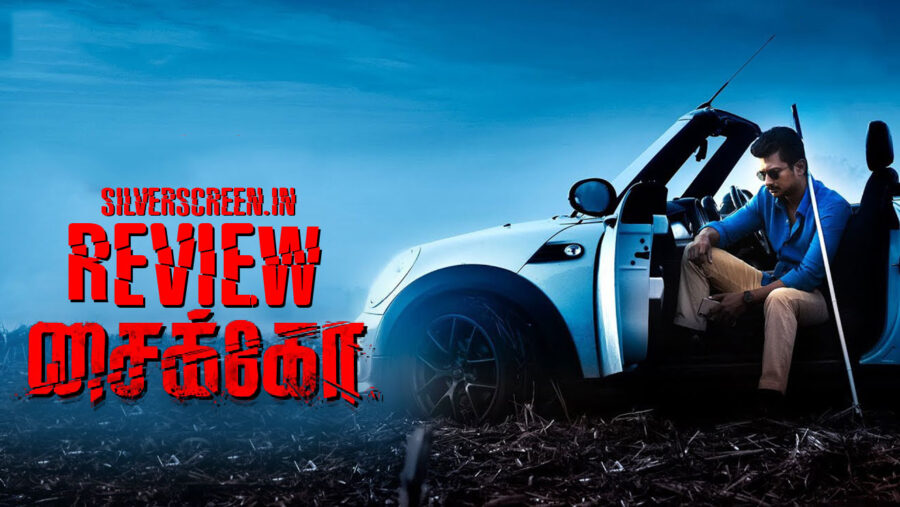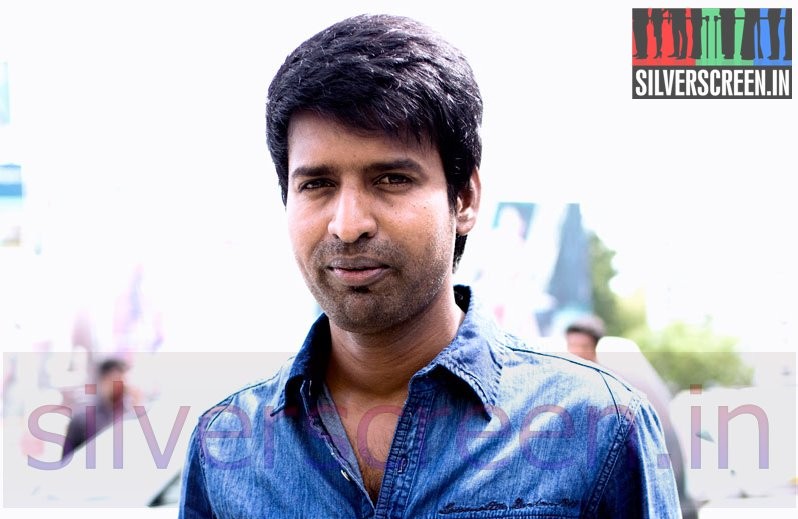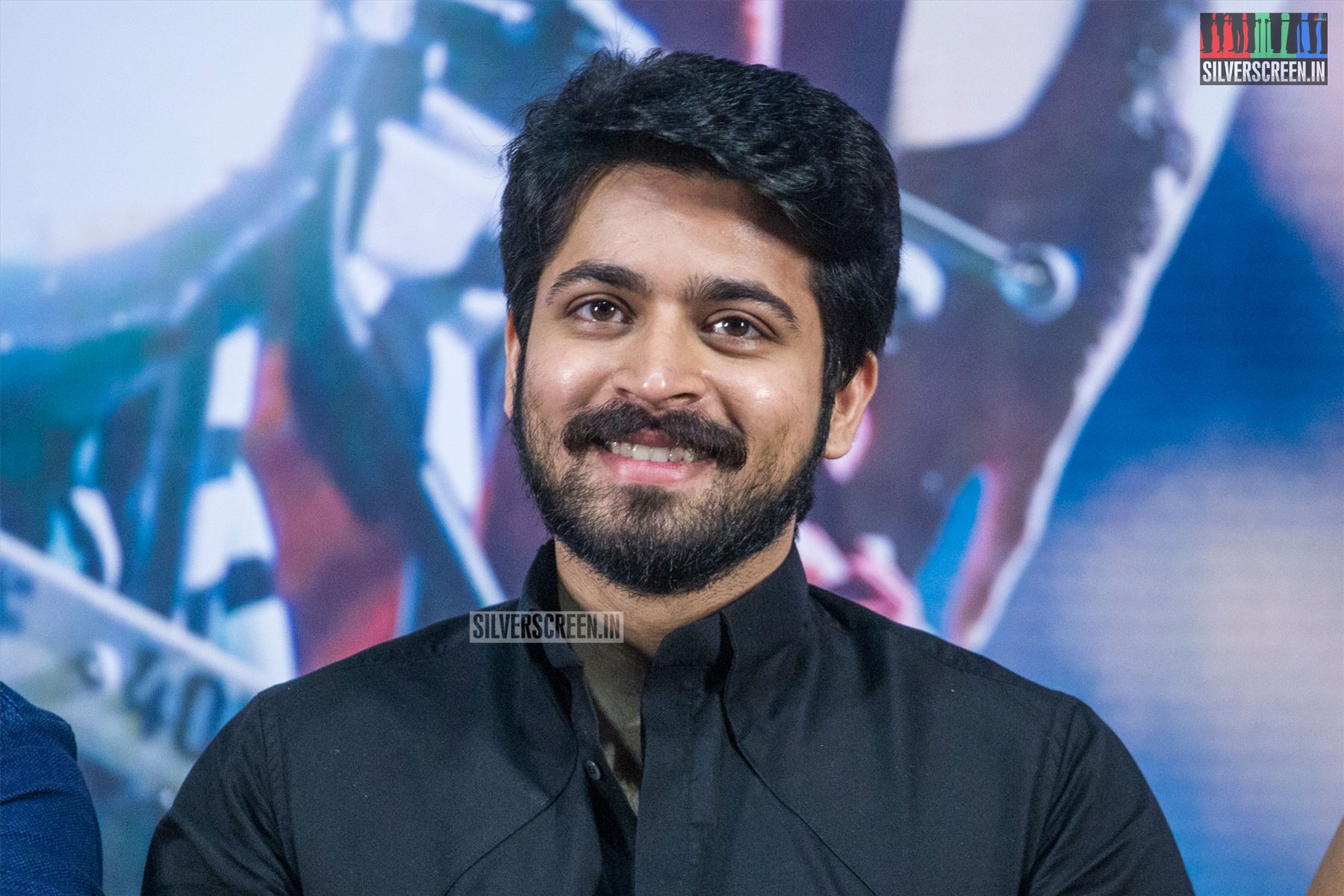Director: Mysskin
Cast: Udhayanidhi Stalin, Nithya Menen, Aditi Rao Hyadri
Sex and sexual violence are at the centre of Mysskin’s Psycho. Early in the film, we get a clumsily put together lecture on psychopaths and serial killers from a mental health professional. Radio jockey Dagini (Aditi Rao Hydari) is interviewing the doctor on her show, following a spate of murders in the city of Coimbatore. The killer has a signature, something we get in the opening scene, the director pulling no punches. He has the woman lying down on a table, the limbs and body fastened to it. He then moves the levers to get the head down. And one whack, the head is separated from the torso. The headless bodies are then discarded in various places in the city’s edges, partially naked. The first body we find, Mysskin’s favourite bird’s eye view shot rears its head, the parents of the girl scream at the gods. In the interview, the doctor observes that none of the women was raped or sexually violated in any way. She says maybe that’s because the killer doesn’t enjoy sex or is simply unable to have sex.
Mysskin need not have bothered with the “tribute to Alfred Hitchcock” card in the beginning of the film. It’s all there right from the title. There are the bird’s eye view shots. The Psycho shower scene is partially recreated in a basement parking. Here too, there is a mother figure. We cannot make out if she is a prisoner or an accomplice. Or if she exists. A skeleton turns up in a decrepit cell. But there are also subtler tributes. During Unna Nenachu, Dagini climbs up a hillock to only stop in front of a tiny pond. There is a bird in the pond caressing itself, and then we get another shot from above. We see the hill glowing with lights under the night sky, Dagini standing in front of the pond that is shaped like the vulva. If this is not Hitchcockian, then what is? There is another frame with a similar feminine image.
Gautham (Udayanidhi Stalin) is lying on the floor of his home, next to him the reflection of a skylight, a perfect square in the centre eclipsing the rays forming a… hole?
Psycho doesn’t get carried away with the tributes. It is patently Mysskinian too. We get the full gamut — the musician protagonist, the homeless in railway stations, the deserted basement parking, a reference to Ouija and talking to ghosts, men crawling on all fours, and at times reduced to slithering across with no limbs to support. Eerie night sky lit only by a petrol bunk on a highway with the traffic signal perennially in red. Under the lights, a prostitute. Mysskin’s trademark empathetic gaze on society’s rejectementa is all over the screen. The police question a prostitute for possible leads, the camera’s gaze and the officers’ eyes overflowing with warmth and compassion. One wonders where in this state are such considerate, empathetic police officials. They do exist only in Mysskin films. An affectionate respect creeps up in the voice of a senior police officer when he tells the constable guarding the police station at night to continue sleeping. Quirky ticks like the inspector played by Ram humming AM Rajah songs (there is Thanimaiyile of course and I *think* one song from Then Nilavu) at the most inopportune moments. It doesn’t help that he is a bad singer.
Gautham is blind and his partner in crime solving — a delightfully potty mouthed Nithya Menen as Kamala Das — is a quadriplegic ex-police officer. We see Buddha in front of a room full of Hindu deities, as if Gautham gave up on his parents’ faith and sought some relief in Buddhism. Kamala Das must of course be named for the poet and literary giant from Kerala, known for her writings on women’s issues, sexuality and freedom. Disability is one of Psycho’s running themes. Almost all the principal characters are disabled in some manner and mental health is repeatedly invoked. Gautham interrupts a doctor talking to a suicidal patient and we get a wall poster on mental health awareness. One of the victims’ name is Sylvia Plath. It’s rare to get a film that moves the needle on the way the disabled are portrayed on screen. In Psycho, they are intelligent, mobile crime solvers needing little physical help. Mysskin takes it to the extremes too: he has them driving a vehicle.
Recommended
Do all of this form a coherent film? That’s a tough question. Mysskin plays around with a lot of themes here. Religion (a praying Muslim police officer leads a clue to a pig farm!), sex, sin, sexual violence, disability, mental health. Almost all characters invoke their gods and at some point, even the non-believers are pushed to pray. But most striking of all, there is the dichotomy that is at the centre of any religion. The good and the bad. There is symmetry in many of Psycho’s frames, more than most other Mysskin’s films. Both Gautham and the antagonist are stalkers. One does it for extreme violent ends, the other claims to do it out of pure love, so much that he says he doesn’t even care if the love is requited. This is reinforced by a frame where both come in close contact and, for a moment, one is eclipsed by the other. Are they one and the same? Have tiny inflection points resulted in their eventual disposition, in mental and physical ways. Psycho is heavy, not without its rewards but do all of it come together is a question for another day.
The Psycho review is a Silverscreen.in original article. It was not paid for or commissioned by anyone associated with the film. Silverscreen.in and its writers do not have any commercial relationship with movies that are reviewed on the site.



